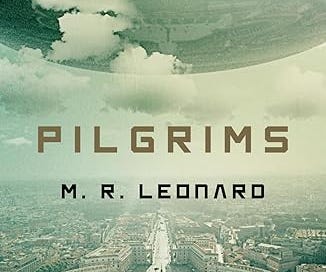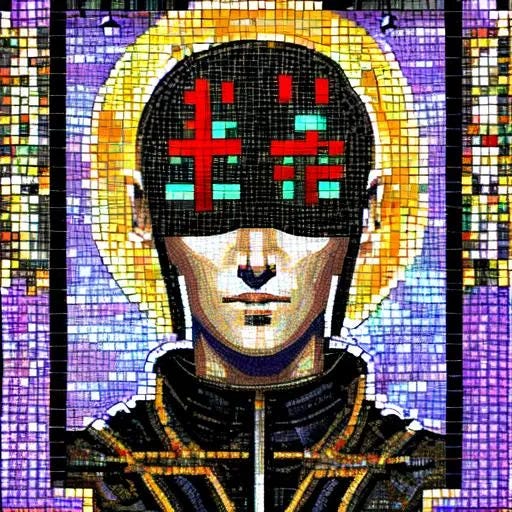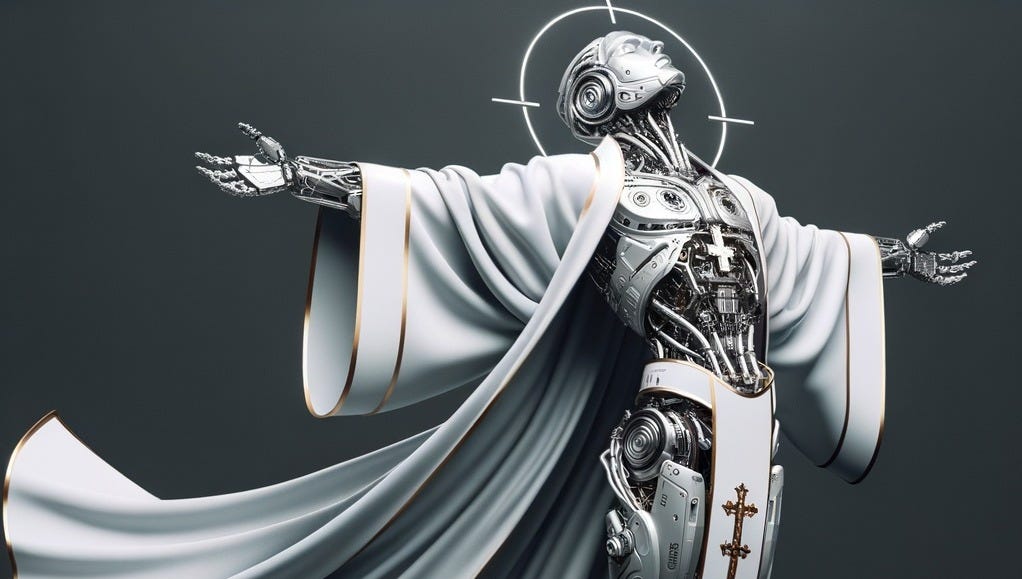Your Next Read: Pilgrims (Review)
An entertaining, engaging novel in which aliens invade Earth--and they're Catholic.
I mostly read old books.
I’m at home in long, wordy paragraphs. My attention span is vast when reading Dostoevsky, Tolkien, Homer, and all the “big names” in literature. Novels are still shiny new to me at only 30 years old.
This is not because I’m a “book snob”--although I gladly wear that badge. It’s because I struggle to find modern novels that are both engaging and intellectually stimulating to me. I’ve found books that fall on one side of that spectrum or the other, but rarely both. One might be an exciting, fun read, but as vacuous as deep space. Another is deep, but overblown or confusing. No “Goldilocks zone” here--current books seem either “too artistic” or “too beach-ready,” but rarely “just right.”
So color me surprised whenever I find a brand new novel that meets my snobby expectations. Most recently, that book was Pilgrims, by M.R. Leonard.
This is a really great science fiction book, both exciting to read and intellectually stimulating. Here’s the Amazon blurb:
Out-of-work Latin teacher and borderline alcoholic Austin DeSantis is determined to spend his final days in the arms of a prostitute—that is if the aliens don’t exterminate humanity first.
But when the aliens land at the Vatican, begin speaking Latin, and reveal themselves to be Catholic, the world turns upside down.
Pressed into service as a translator and thrust into the center of humanity's first contact with a cryptic alien race, Austin must uncover their true intentions before religious turmoil rips the planet apart. But with Austin caught between the Catholic Church, the US military, and an enigmatic alien AI, he'll have to decide where his loyalties lie as the fate of humanity hangs in the balance.
PILGRIMS is a sci-fi retelling of Augustine's Confessions, mixing a high-concept premise à la Children of Time with the ceaseless pacing and rich characterization of Red Rising.
Weren’t expecting that, were you? Neither was I—but I was curious enough to give the book a shot. And I’m glad I did. Here’s why:
Fascinating Premise
Alien invasion has been a staple in science fiction since the earliest days of pulp fiction. The stereotype goes that the alien visitors are hostile. Little green men from Mars with ray-guns. A warlike civilization bent on conquest. Or even otherworldly monsters come to harvest our planet for minerals or water or food (sometimes food = us!) When this trope is broken, the aliens are always god-like, super-sentient, evolved beings come to sneer at our barbaric planet. The thinking here, I think, is that if an alien race is advanced enough to conquer the stars, they just have to be socially or spiritually advanced too. Advancement in one area implies the other, doesn’t it?
In Pilgrims, we get a bit of both. From page one, violence runs rampant–both feared and actual. But additionally, what makes Leonard’s premise interesting is that the aliens are Christian. And not just vaguely or somewhat Christian, but staunch Roman Catholics. Although thoroughly alien, they are thoroughly Catholic. They cross themselves, speak Latin, build chapels, have the Bible memorized…the whole shebang and then some.
Now, when I first learned this aspect of the book, I was at once intrigued, but also, I’ll admit it right now, I rolled my eyes. I figured the book was some Catholic fever-dream, that Leonard was just fantasizing, and it would fall flat for those of us who are not in the Roman camp. I’m Eastern Orthodox–so a very traditional, liturgical follower of the ancient Church–and this was my thought; how much more would a Lutheran, modern Evangelical, or any other denomination feel that? Not to mention atheists.
I was right and wrong in that assumption. Catholics will no doubt cheer this book from beginning to end, feeling they are on the team that “won,” as Leonard does imply that the Roman Catholic faith is “correct.”
Sort of.
It’s not quite that cut-and-dry. In the context of the novel, Leonard definitely asserts that Christianity is, without wavering, true. But he is far from pedantic in this. Pilgrims presents no cardboard-cutout world. Many Christians are written in a less than positive light. In one specific instance (which I won’t spoil here) Catholics are shown in a downright horrendous light. Moreover, non-Christians are not disregarded, demonized, or treated as morons. In fact, our protagonist, DeSantis, is incredibly flawed. He’s a sex-addict, thief, liar, and more–and yet I ended up caring about him, rooting for him, worrying about him, and cheering as he flails about, trying to do what’s right and to be a better person.
This novel is the best of Christian-based fiction: it doesn’t shy away from its religious beliefs, it enacts them. Mainly by understanding and loving everyone (even the most alien).
Implications
Pilgrims is essentially a “what if” novel: What would happen if Catholic aliens invaded–and it’s fascinating. Because humanity knows years in advance of arrival that the Pilgrims are coming, there’s plenty of time for the water to boil. Economies spiral, geo-political conflicts charge-up, and in America, civil rights evaporate. Fear is a fully-realized antagonist, especially in the first third of the plot. And that fear has very real consequences for the characters.
But the aliens arriving is just the beginning. Once they touchdown on Earth, the temperature only increases. Which is perfectly logical: how would the world’s societies react to the news that the aliens are here, that they are immensely powerful, and they are Catholic?
Governments react–some poorly, some very poorly. Mistrust and espionage grows. Militaries mobilize and refuse to stand down, even though the aliens appear peaceful. Would mass baptisms occur, and church services fill? Or would hatred and fear cause the opposite? (One oft-repeated line in the book is, “If the aliens are with God, I’m on the other team.”) And what of Muslims? Jews? How would their leaders and societies react? The novel explores this, with the tensions playing out as feasible, intriguing plot points.
Page-Turner
As I said, I am a literary snob, so take my final reason for what it’s worth. I love a well-written book, with sublime dialogue and layers of meaning. I’ll say right now, Pilgrims does not fit that mold. It will never be a classic. In the interview that brought it to my attention, it was described as an “airport novel”--which I take to mean a popular page-turner, like a thriller. And this is quite accurate.
The plot is melodramatic.
The characters are a bit one-dimensional–especially side characters, nearly all of whom are types. NPC stand-ins for emotions or ideas.
Each chapter is short and punchy–and ends with a cliffhanger. Some of them are intentionally dramatic–even downright misleading—to get us to turn the page.
The prose “tells” as much as it “shows.” It’s as if Leonard is ever-afraid that a reader won’t “get it.” A few times I groaned when a character was described as shaking and quivering, and then the very next sentence told me he was afraid. As did the next paragraph. And the next. Ditto this with most emotions (depression, sad, etc.)
But for all these flaws, despite its melodramatic shortcomings and somewhat ham-fisted writing, I still really, really enjoyed this book.
Its pacing is very fast and it was always interesting. Sometimes I could not resist finding out what happened next. Even more than that, though, I felt for the characters–especially our protagonist and his circle (Father Ambrose and Virgil, an alien robot). The climax was powerful, satisfying, and deeply moving. I treat most throwaway novels like popcorn: fun for the moment, filling your belly with a tasty treat, but ultimately forgettable. Sometimes you even feel guilty for eating it. I normally read “pop lit” between deeper, more satisfying reads. But this one stands out: it was popcorn, but a very satisfying meal. In many ways, it reminded me of the sci-fi of my youth: simultaneously entertaining and unafraid to tackle important issues.
Sober Faith
But what really elevates Pilgrims is its theme.
Live for others, don’t treat them as objects for your satisfaction or to achieve your selfish ends. Forgive them, even if they don’t deserve it. Protect them–especially the weak and powerless. To the point of sacrificing yourself for them. Basically, while the book avoids “telling” you to be Christian (much less Catholic), it both tells you and shows you how to act like one. And it gives us exemplars that draw our hearts toward that goal like steel to a magnet.
The second aspect—intertwined with the first—is the novel’s apologetics. Characters discuss proofs for the existence of God, the reason for worship, and more. And they do so in a natural, conversational manner anyone can understand (as I said, this is an “airport novel”--not Tolstoy). What may be most intriguing, though, is conversation on why, despite all the proofs for the existence of God and the Risen Christ, someone would refuse to convert. And in the context of Pilgrims, this is shot in the arm with a barrel-full of steroids. As those of us who are Believers would not be surprised, the book proposes failure to convert is not due to lack of evidence, nor the rise of science. It’s selfishness. It’s habit. It’s laziness.
Kudos to Leonard for making these discussions both readable and interesting. As well as for writing a very good, entertaining, and engaging novel.
Thank you for visiting The Reading Room!
I’m interested in your thoughts and ideas—I joined Substack to find kindred spirits. Are you interested in this novel? Have you read it—and if so, is your assessment the same as mine?









this... sounds like a ton of fun. I want one.